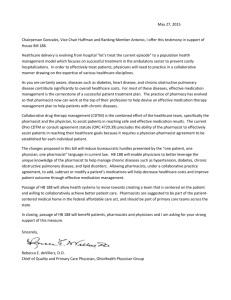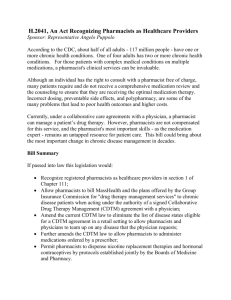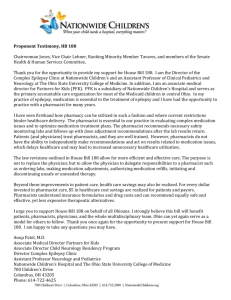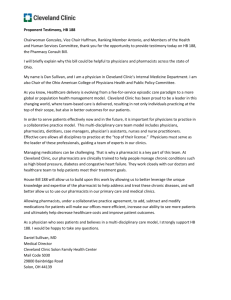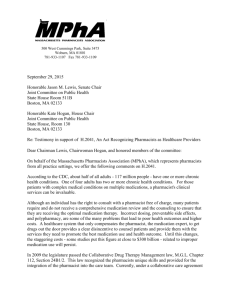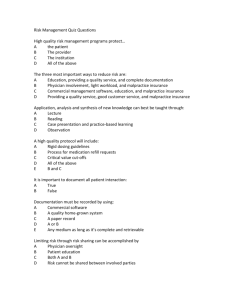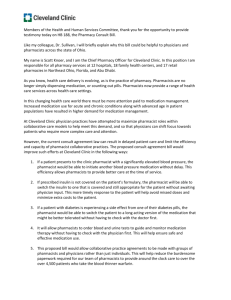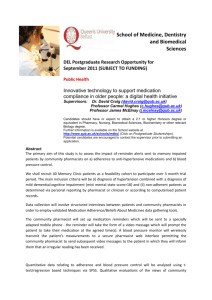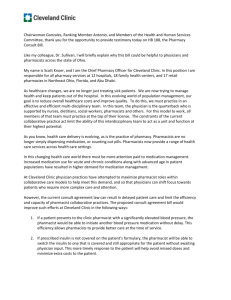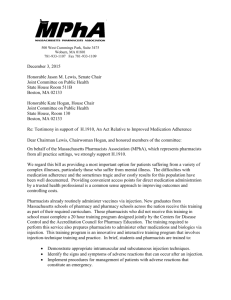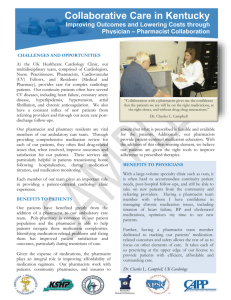June 10, 2015 Chairperson Jones, Vice Chair Lehner and Ranking
advertisement
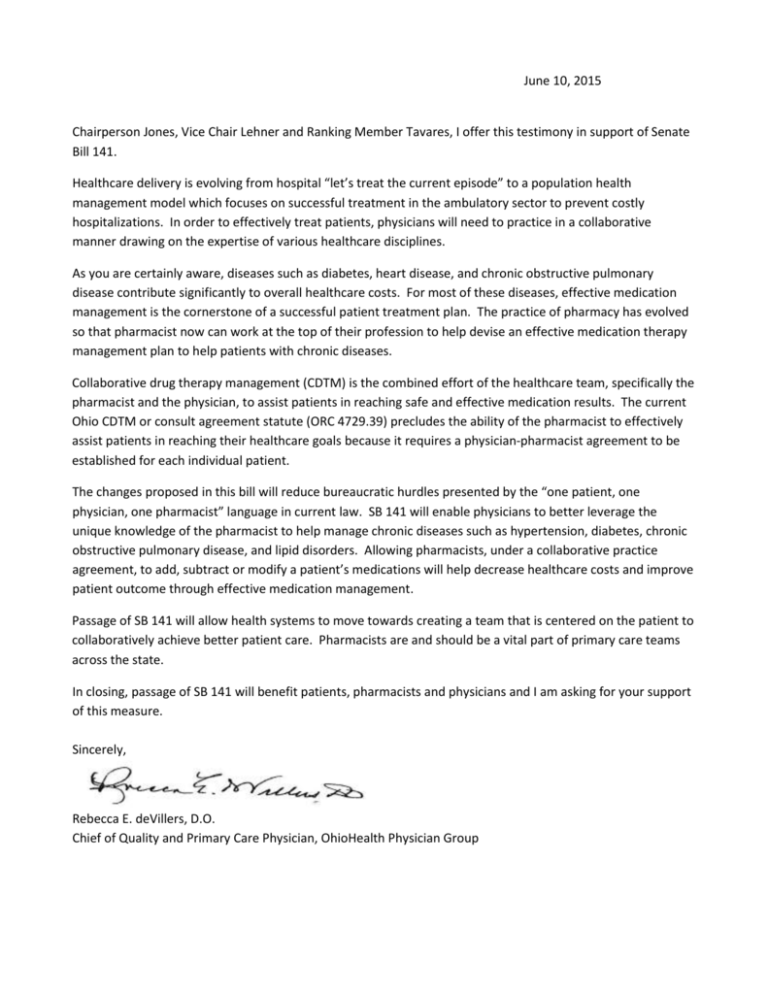
June 10, 2015 Chairperson Jones, Vice Chair Lehner and Ranking Member Tavares, I offer this testimony in support of Senate Bill 141. Healthcare delivery is evolving from hospital “let’s treat the current episode” to a population health management model which focuses on successful treatment in the ambulatory sector to prevent costly hospitalizations. In order to effectively treat patients, physicians will need to practice in a collaborative manner drawing on the expertise of various healthcare disciplines. As you are certainly aware, diseases such as diabetes, heart disease, and chronic obstructive pulmonary disease contribute significantly to overall healthcare costs. For most of these diseases, effective medication management is the cornerstone of a successful patient treatment plan. The practice of pharmacy has evolved so that pharmacist now can work at the top of their profession to help devise an effective medication therapy management plan to help patients with chronic diseases. Collaborative drug therapy management (CDTM) is the combined effort of the healthcare team, specifically the pharmacist and the physician, to assist patients in reaching safe and effective medication results. The current Ohio CDTM or consult agreement statute (ORC 4729.39) precludes the ability of the pharmacist to effectively assist patients in reaching their healthcare goals because it requires a physician-pharmacist agreement to be established for each individual patient. The changes proposed in this bill will reduce bureaucratic hurdles presented by the “one patient, one physician, one pharmacist” language in current law. SB 141 will enable physicians to better leverage the unique knowledge of the pharmacist to help manage chronic diseases such as hypertension, diabetes, chronic obstructive pulmonary disease, and lipid disorders. Allowing pharmacists, under a collaborative practice agreement, to add, subtract or modify a patient’s medications will help decrease healthcare costs and improve patient outcome through effective medication management. Passage of SB 141 will allow health systems to move towards creating a team that is centered on the patient to collaboratively achieve better patient care. Pharmacists are and should be a vital part of primary care teams across the state. In closing, passage of SB 141 will benefit patients, pharmacists and physicians and I am asking for your support of this measure. Sincerely, Rebecca E. deVillers, D.O. Chief of Quality and Primary Care Physician, OhioHealth Physician Group
